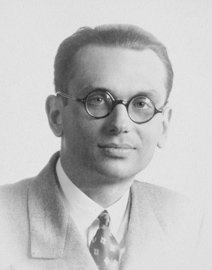Simanaitis Says
On cars, old, new and future; science & technology; vintage airplanes, computer flight simulation of them; Sherlockiana; our English language; travel; and other stuff
CIVILIZATION, IN A FEW WORDS
AN OP-ED piece in The New York Times, March 30, 2014, “Civilization’s Starter Kit” by astrobiologist Lewis Dartnell discussed an interesting question. It was first posed by physicist Richard Feynman: “What single sentence passed on to future generations would contain the most scientific knowledge in the fewest words?”

Left, Richard Feynman, 1918 – 1988, American physicist, Nobel laureate. Center, Lewis Dartnell, British astrobiologist, author of The Knowledge: How to Rebuild Our World from Scratch, Penguin Press, 2014.
Feynman, who hardly spared words, said “I believe it is the atomic hypothesis that all things are made of atoms – little particles that move around in perpetual motion, attracting each other when they are a little distance apart, but repelling upon being squeezed into one another.”
Whew!
Dartnell suggests that, encapsulating though this is, the Feynman choice wouldn’t be particularly useful in any practical sense. He cites his father-in-law’s view: Dartnell may have three degrees yet doesn’t know anything about anything, whereas the father-in-law graduated summa cum laude from the University of Life.
My mom, rest her soul, said to me often enough: “Dennis, you’re book-smart but head-dumb.”
So both Dartnell and I continue to rethink this one most useful scientific fact worthy of preservation.
His suggestions are more than single sentences, but certainly thought-provoking.
• Infectious diseases are caused not by whimsical gods but by germs, invisibly small organisms invading the body. Dartnell follows this with practical information on soap-making and on disinfecting water for drinking.
• Crops can be grown and stockpiled for food. Grinding grain is a technological extension of our molar teeth. Baking breaks down the complex molecules into more easily absorbed nourishment.
• Earthen materials can be transformed into metals and masonry. These can be made into tools and shelter.
• Sand, soda and quicklime can make a miraculous transparent membrane. Glass, in turn, is transformed into eyeglasses, microscopes and telescopes allowing us to see the world in so many ways.
Being a kindly old math professor at heart, I am compelled to identify several pithy bits of mathematics worthy of preservation.
• The Pythagorean Theorem, the square of a right triangle’s hypotenuse is equal to the sum of the squares of the other two sides.

The Pythagorean Theorem; Greek Pythagoras, c. 570 BC – c. 495 BC. See http://wp.me/p2ETap-Rf.
• The Elements of Euclid, compiled by Greek mathematician, Euclid, c. 300 BC. The illustration above forms the basis for Euclidian proof of the Pythagorean Theorem. See http://wp.me/p2ETap-Fg.
• The Binomial Theorem, expanding (x+y)n into terms of the form axbyc. For example, (x+y)4 = x4 + 4x3y + 6x2y2 + 4xy3 + y4.

Pascal’s Triangle identifies the binomial coefficients. See http://wp.me/p2ETap-GC.
• The Fundamental Theorem of Calculus, linking the concept of derivative of a function with the concept of integral. Hitherto, this first mathematical concept concerned changes of motion; the second, geometric areas.
Englishman Isaac Newton and German Gottfried Leibniz each brilliantly recognized the fundamental connection of the two concepts. See http://wp.me/p2ETap-1nc.
• Gödel’s Incompleteness Theorems, which establish inherent limitations for logical systems.
In 1931, Kurt Gödel discovered that any but the most trivial axiomatic systems are incomplete, in the sense of having statements that resist proof. Furthermore, any system cannot demonstrate its own logical consistency. See http://wp.me/p2ETap-1UN.
Gödel’s findings are worthy of preservation because they set boundaries of mathematical logic, of the philosophy of mathematics—of knowledge itself. ds
© Dennis Simanaitis, SimanaitisSays.com, 2014



How about something as simple as,”Cogito, ergo sum.”
Indeed, a thoughtful choice.